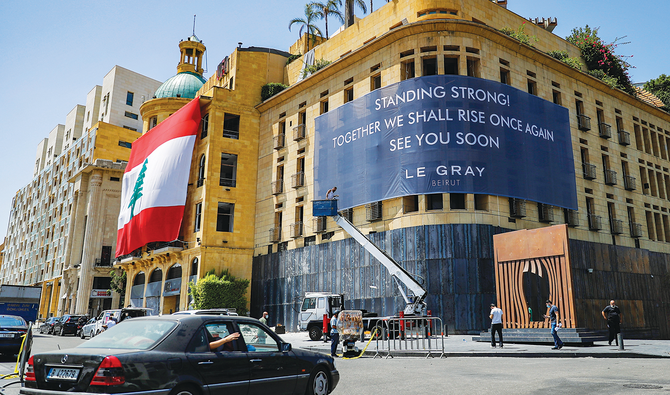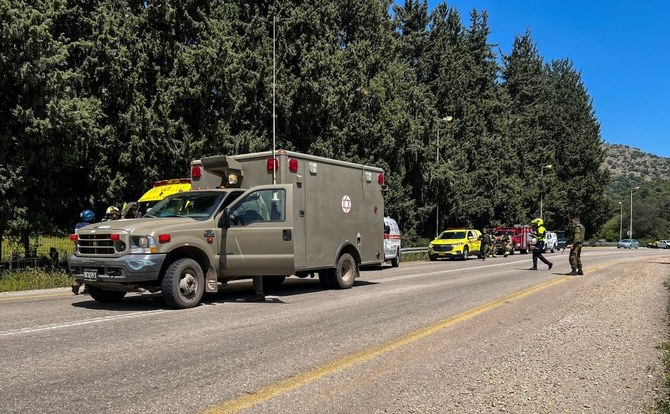BEIRUT: The owners of stores, restaurants and other businesses in Beirut and other cities in Lebanon on Monday rebelled against a government-imposed lockdown intended to slow the spread of the coronavirus. They said they will reopen from Wednesday.
The defiant move reflects growing concern about the political stalemate in efforts to form a new government, and the worsening financial crisis. Riad Salameh, governor of the Banque du Liban, Lebanon’s central bank, reportedly told President Michel Aoun, caretaker Prime Minister Hassan Diab and caretaker Minister of Finance Ghazi Wazni last week that there is only enough cash in reserve to fund subsidies of basic items such as bread, fuel and medicines for three months. It has $19.6 billion available, $17.5 billion of which must be kept to cover a portion of deposits by bank customers. This leaves $2.1 billion for subsidies, which cost $700 million a month.
This financial drought has been caused by declines in remittances from expatriates, which reached $7.5 billion in 2019, the collapse of tourism, worth up to $7 billion a year, and a lack of investment.
Nicolas Chammas, the chairman of Beirut Merchants Association, announced a “total rejection of the lockdown in light of the failure of the state to provide alternative income for the people, and the restrictions on access to money deposited in banks.”
He also criticized the lack of government action to help businesses and added: “We used to say 25 percent of shops will close by the end of this year — now we will be lucky if 25 percent of commercial establishments survive until the end of the year.”
Chamas called for the formation of “a national salvation government quickly” and added: “We refuse to turn into a relief economy because we are not beggar people; we want a productive economy.”
The previous government resigned this month amid public anger over the explosion that destroyed Beirut’s port on Aug. 4. Many analysts predict the financial situation will get worse before it gets better. The Lebanese currency has lost 85 percent of its value, inflation is 90 percent, and a second wave of the coronavirus is adding to the problems. As more people lose their jobs, Lebanon does not have a social safety net to help them.
“I do not understand how the politicians have not yet been provoked by the fact that the central bank’s hard-currency reserves have hit rock bottom and they are not moving in the direction of immediate solutions,” said Bechara Asmar, the head of the General Labor Union. “They must form a government of competent people who can decide on the beginning of a strategy.
“The first way to address the problem is to form a government with a minimum level of understanding of economic policy. It is unacceptable that leaders elected by the people do not speak to each other.”
A source at the Ministry of Finance said: “A set of measures could have been taken to address the economic collapse the country is facing … but the problem is that no one in authority wants to make any concessions.”
To recover, Lebanon will need to borrow billions of dollars from the international community, and the main condition for such a loan is sweeping economic reforms. On Monday, Wazni delivered to Aoun a contract with management consultancy Alvarez and Marsal. It will carry out a forensic audit of the accounts at the central bank. Wazni said he expects the contract to be signed in a few days and the audit would begin four or five days later. An initial audit report would be published within 10 weeks.
“The president is keen to ensure the audit includes all public institutions and is not limited to the accounts of the central bank,” he added.






















